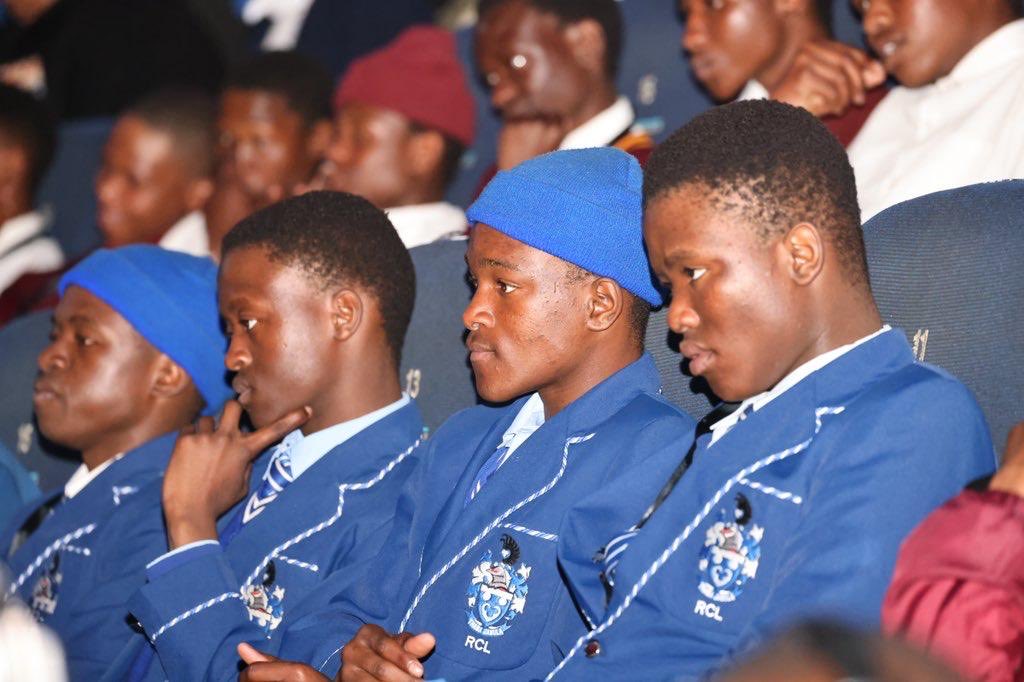Lerato Mbhiza
President Cyril Ramaphosa engaged with young men and boys at a Soweto Indaba, on the fight against gender-based violence and shared with them progress the government has made in dealing and preventing the scourge in schools.
Ramaphosa said young men especially were susceptible to violence because they face a lot of pressure from family, relationships, friends, school and places of higher learning, in peer groups and in society as a whole.
Also, boys were vulnerable to recruitment by gangs and pressured to take part in criminal activities, he said, adding that ‘the young men of this country are being made into men before their time’.
“You may face pressure from your friends to become sexually active even when you are not ready to, because this is seen as being a real man. Worse yet, engaging in unsafe sex practices is also seen as more manly.
“Also being forced to be sexually active even when you are not ready, because this is seen as being a real man. Which lead to high numbers of teenage pregnancies, the spread of HIV and sexually transmitted infections and other problems.
“Kumele sikhulume (we must talk) about sexuality in general; about stigma, bullying and even violence against gay or gender non-conforming young men. This is a problem in many of our communities” he said.

Ramaphosa said absentee fathers are one of the greatest tragedies of our nation. Only a third of South Africa’s children live with both parents. Most children either live with their mother only or with neither parents.
He encouraged the talk about what it means for young men and boys not to have a father at home to support, encourage and guide them. The pressure on young men and boys to drop out of school to earn a living because they have family members relying on them financially, or because they want to be independent.
“As young men you are vulnerable too. You also experience depression, loneliness, and frustration. These can sometimes manifest in aggressive behaviour especially towards women and girls, problematic relationships, and violence” he said
Ramaphosa encouraged the young man to change from old ways and become a new generation of men who are respectful, masculine in a positive way and sensitive.
“They would never think of a woman as less than a man. They would never think about raising their hand against a woman”.
“We have convened this dialogue because we recognise that we must engage men and boys separately from women and girls.
“We want to create more safe and open spaces where you can talk about your feelings, share with each other and collaborate on strategies that help you advance through different stages of your lives”.
He added that the focus of the programme is to reimagine and reinvent masculinities in sensitive, kind, respectful, accountable, expressive and nurturing ways.
“It is about working with young men and boys through theatres of learning to influence how they view themselves and the kinds of men that they grow into.
“As government, civil society, business and social partners we are committed to supporting you in your journey to becoming better men”.

INSIDE POLITICS

